#emperor domitian
Text

Roman Coin - Gold Aureus of Domitian
AD 92-94
Obverse: portrait of Domitian. Reverse: GERMANICUS COS XVI. Emperor in a chariot in the triumph accorded after victory over the Chatti in AD 83, as a result of wich Domitian took the title ' Germanicus'.
Domitian (24 October 51 – 18 September 96) was Roman emperor from 81 to 96. The son of Vespasian and the younger brother of Titus, his two predecessors on the throne, he was the last member of the Flavian dynasty. Described as "a ruthless but efficient autocrat",his authoritarian style of ruling put him at sharp odds with the Senate, whose powers he drastically curtailed.
Domitian had a minor and largely ceremonial role during the reigns of his father and brother. After the death of his brother, Domitian was declared emperor by the Praetorian Guard. His 15-year reign was the longest since that of Tiberius. As emperor, Domitian strengthened the economy by revaluing the Roman coinage, expanded the border defenses of the empire, and initiated a massive building program to restore the damaged city of Rome. Significant wars were fought in Britain, where his general Agricola attempted to conquer Caledonia (Scotland), and in Dacia, where Domitian was unable to procure a decisive victory against King Decebalus. Domitian's government exhibited strong authoritarian characteristics. Religious, military, and cultural propaganda fostered a cult of personality, and by nominating himself perpetual censor, he sought to control public and private morals.
As a consequence, Domitian was popular with the people and the army, but considered a tyrant by members of the Roman Senate. Domitian's reign came to an end in 96 when he was assassinated by court officials. He was succeeded the same day by his advisor Nerva. After his death, Domitian's memory was condemned to oblivion by the Senate, while senatorial and equestrian authors such as Tacitus, Pliny the Younger, and Suetonius propagated the view of Domitian as a cruel and paranoid tyrant. Modern revisionists instead have characterized Domitian as a ruthless but efficient autocrat whose cultural, economic, and political programs provided the foundation of the peaceful second century.
#Emperor Domitian#Roman Coin - Gold Aureus of Domitian#AD 92-94#gold#coin#collectable coins#roman coin#ancient artifacts#archeology#archeolgst#history#history news#ancient history#ancient culture#ancient civilizations#ancient rome#roman history#roman empire
75 notes
·
View notes
Text
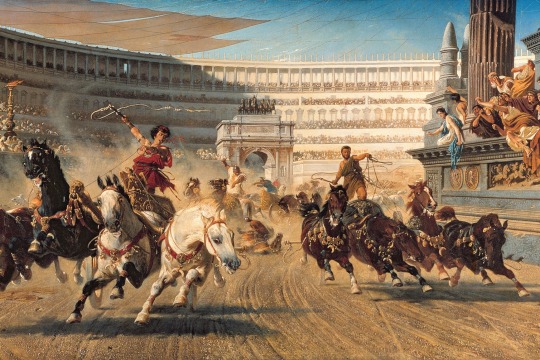
The Chariot Race (detail) by Alexander von Wagner
#chariot race#alexander von wagner#art#circus maximus#ben hur#ancient rome#chariot racing#history#antiquity#europe#european#rome#roman#romans#chariots#emperor domitian#chariot#racing#race
194 notes
·
View notes
Text
the assignment (finding an argument and its parts and evidence in a podcast):

what i did (i haven’t even finished the first episode on there)


#domitian#emperor domitian#nerva#marcus cocceius nerva#tagamemnon#the history of rome with mike duncan#help me please#uhhhh. im just gonna go ahead and.#actually autistic#bc if i didnt have the tism i probably wouldnt be doing this#failemperor tag
2 notes
·
View notes
Text
The underbelly of Rome's imperial history holds tales of decadence, cruelty, and the relentless pursuit of power. This list of eight emperors who left an indelible mark on history for all the wrong reasons unveils the dark tales behind Rome's crumbling glory.
From the mad extravagance of Nero to the bloodlust of Commodus, and Elagabalus's bizarre reign, these emperors proved that absolute power certainly doesn’t lead to absolute wisdom. These rulers embody the meaning of ‘absolute power corrupts absolutely’.
23 notes
·
View notes
Text
i finally got my essay back from last year and i got a 96 i wish i had known this before i had the biggest breakdown of my life over how bad my grades were
#it was about emperor domitian so i knew i would do well :3#i <3 having a personality disorder that tells me i should kms if i get less than an A#to be fair it doesn’t matter that i got a 96 because it’s only worth 25% of my grade and my others were bad#but. small victories etc etc
17 notes
·
View notes
Text
new mary beard documentary but i can't even watch it because of exams 🥲
#rambles#classical civilisation#IT'S EVEN GOT HADRIAN IN IT MY FAV ROMAN EMPEROR EVER#well favourite after domitian the eleventh septimus severus and augustus caesar but still
2 notes
·
View notes
Text

The Mirror in the Text: Privacy, Performance, and the Power of Suetonius’ Domitian, Jean-Michel Hulls
#there is an INCREDIBLE text on the saul from the tanakh that really REALLY takes this bit here#about privacy to its absolute most#however im not going to do a comparative with a jewish figure and a roman emperor because it makes me go Eurgh#its really really good tho i promise it lives in my head rent free.#it turned me into a saul apologist bc the whole thing is like: oh that's horror story stuff right there goddamn#domitian tag#book club tag#rome tag
3 notes
·
View notes
Text
Palatine Hill: The Birthplace of Rome
The story of Rome begins like this, with two little baby boys, Romulus and Remus. Left in the woods to be raised by the lupa (she-wolf) in a nearby cave, the twins would grow up to be shepherds. They eventually ventured out, seeking to start their own city, but when the boys could not agree where to build their settlement, they had an argument ending in Romulus killing his brother Remus. …
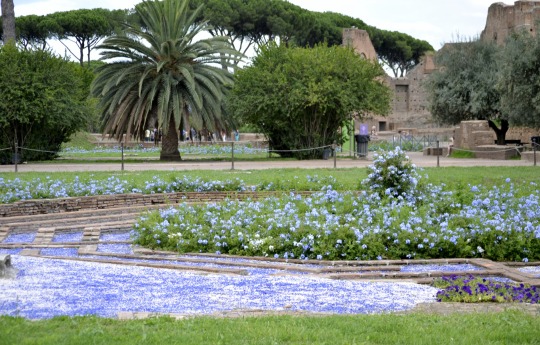
View On WordPress
#Africa#Aqua Claudia#Asia#aviary#Botanical Gardens#Caesar Augustus#chariot races#Circus Agonalis#circus maximus#cisterns#civil engineering#Colosseum#Domitian#Domitian&039;s Aqua Claudia#Domitian&039;s Aqueduct#Domitian&039;s Hippodrome#Domus Augustana#domus augustina#Domus Flavia#emperor#Emperor Domitian#emperors#Europe#Farnese family#Flavian Amphitheater#Flavian dynasty#Flavian Palace#foot races#fountain#grand palace
0 notes
Text
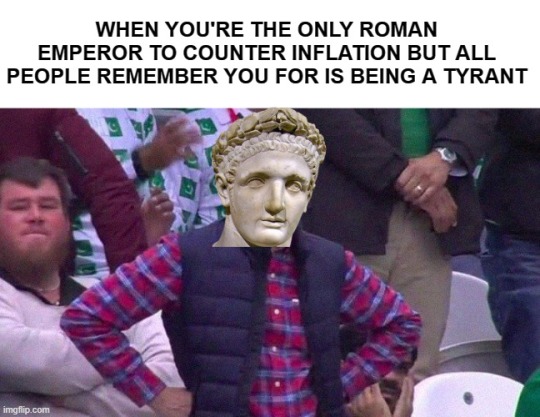
Happy birthday, Domitian!
I appreciate you man, dw.
0 notes
Text
Book Review - Domitian by S J A Turney - highly recommended historical fiction
Book Review - Domitian by S J A Turney - highly recommended historical fiction @SJATurney #Netgalley
Here’s the blurb:
Rome, AD 52. The Julio-Claudian dynasty is in its death throes. Over the next twenty years, chaos descends as Claudius then Nero are killed. The whole empire bucks and heaves with conspiracy, rebellion and civil war.
Out of the ashes and discord, a new imperial family emerges: the Flavians. Vespasian is crowned emperor, with his sons, Titus and Domitian, next in…

View On WordPress
0 notes
Text
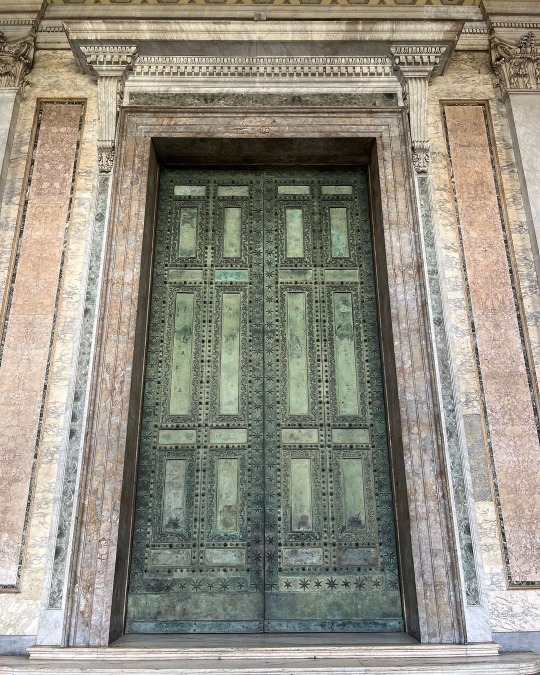
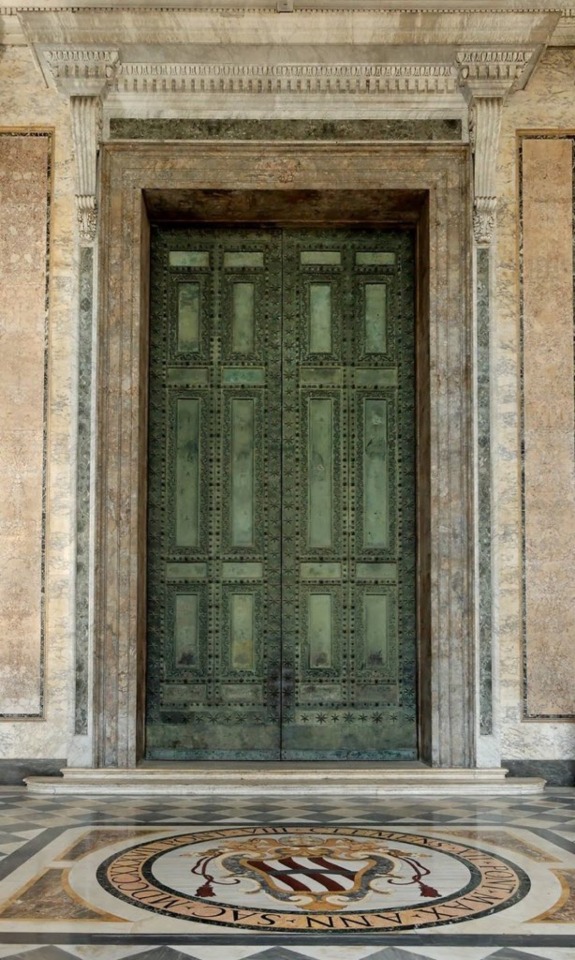
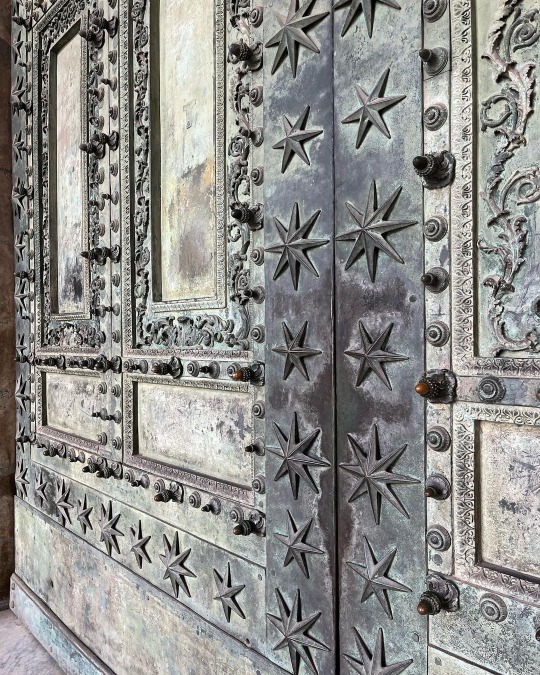

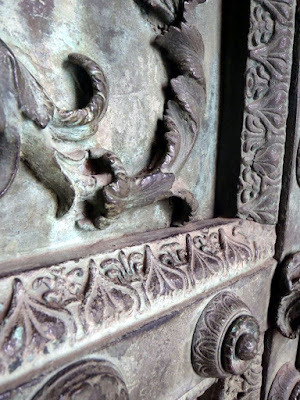
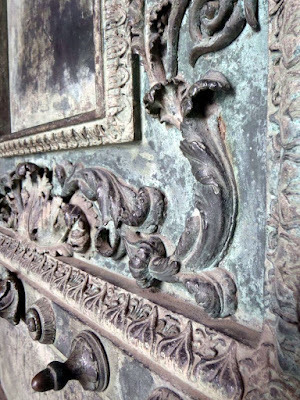
Did you know that if you visit the Archbasilica of Saint John Lateran in Rome, you will pass through magnificent bronze doors that are the originals of the Curia of the Roman Senate that was in the Forum. They are dated to the reign of Emperor Domitian (81-96).
The Roman Forum was the area in which public life took place in ancient Rome and the Curia (“meeting house”) was the building where the Senate met to make administrative and government decisions in ancient Rome.
Pope Honorius I converted the Curia building into a church in the year 630, consecrating it to Saint Hadrian, and in 1660 Pope Alexander VII moved the doors to the archbasilica.
They are very well preserved, decorated with stars, caskets, and garlands, they are incredibly beautiful and remind you that emperors passed through them.
237 notes
·
View notes
Text

the goblin in my brain says “draw that old man grieving” and i have no choice to obey. anyways i know they snuck domitian’s corpse off and cremated him, but fuck that i’m gonna use artistic license anyway.
i read somewhere that nerva might have been domitian’s guardian during titus and vespasian’s judean war crimes jubilee, and i can’t help but wonder what he felt after the assassination. obviously he was picked to be emperor afterward and the senate carried out damnatio memoriae, but was that something he wanted? most of his reign seems to center around trying to keep everyone in government happy (read: not murdering him or anyone else). what won out in his mind, knowing the man was a tyrant or missing the boy whose father he knew?
hell if i know. i’m just the guy that draws the things and thinks about the old dead dudes. tumblr dot com look at my post
#tagamemnon#domitian#…kind of.#nerva#roman empire#i’m always wondering about all the connections nerva seems to have had to the flavians and to nero. he outlived them all#but not by much. what were those last sixteen months like for him?#all the tension that marked his reign that he couldn’t really do anything about… all the dead friends and allies…#being the most powerful man alive in theory but the one most controlled by the wants of others in practice… ough. i need to lie down.#emperor nerva#emperor domitian#my art#marcus cocceius nerva#failemperor tag
1 note
·
View note
Text
The Roman Pharaohs of Ancient Egypt
In ancient history the pharaoh was the head of state and ruler of the country. However, he was not just a secular ruler, but a divine being on Earth who acted as an intermediary between the spiritual world and the earthly world. In essence he was a mortal representative of the gods. Interestingly, one did not have to be an Egyptian to be an Egyptian pharaoh. The act of conquering and ruling Egypt qualified one to be a pharaoh. As a result there were many foreign pharaohs throughout Egyptian history including those who were Persian, Nubian, Libyan, Hyksos, Kushite, and Macedonian Greek.
In 30 BC Cleopatra VII became the last ruler of Egypt from the Macedonian Greek Ptolemaic Dynasty. Cleopatra had backed the losing side of a Roman civil war, opposing Octavian and supporting Marc Antony. Octavian won, she was deposed, she committed suicide, and Egypt became a Roman province. When Octavian became Augustus and founded the Roman Empire, the Egyptians also recognized him as the official Pharaoh of Egypt. Afterwards successive Roman emperors were also declared pharaohs, until around the 4th century when Christianity became the dominant religion in Egypt.
Truth be told, most if not all Roman emperors didn't give a damn about being pharaohs. Most emperors never even stepped foot in Egypt and it didn't seem like they took their role as pharaoh very seriously. Regardless Egyptian iconography and art was crafted depicting Roman emperors in Egyptian style wearing Egyptian royal regalia and interacting with Egyptian gods. Some interesting examples are...
Gigachad Pharaoh Augustus
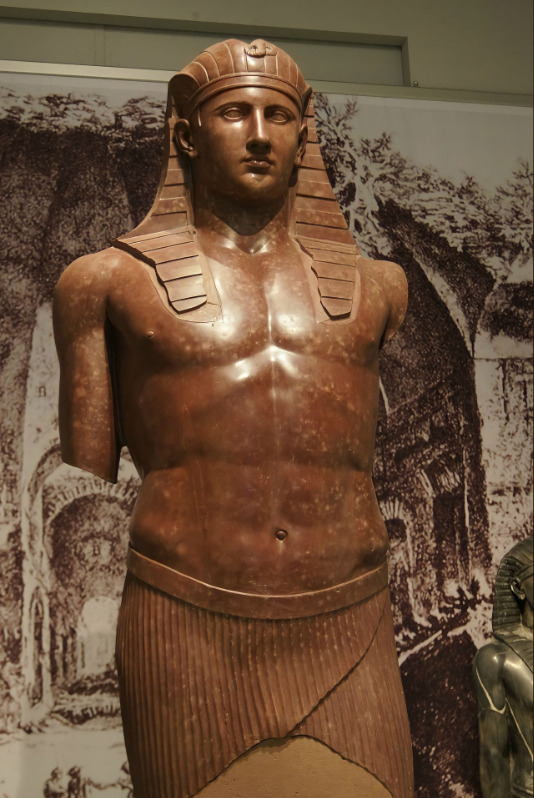
Tiberius
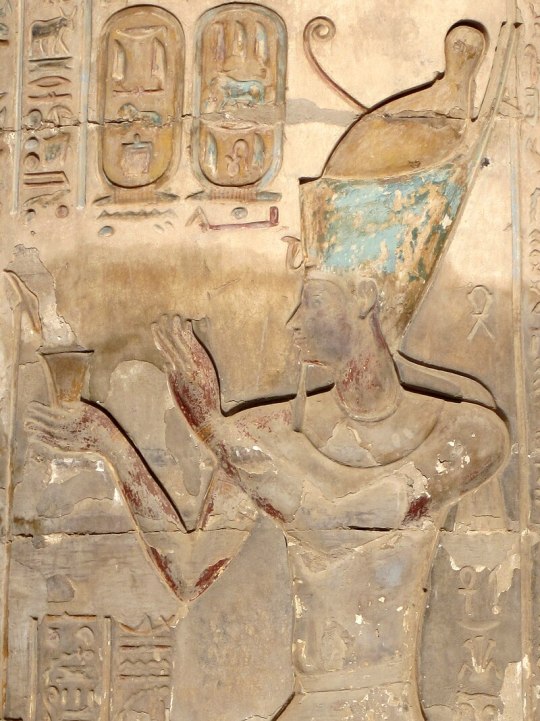
Nero
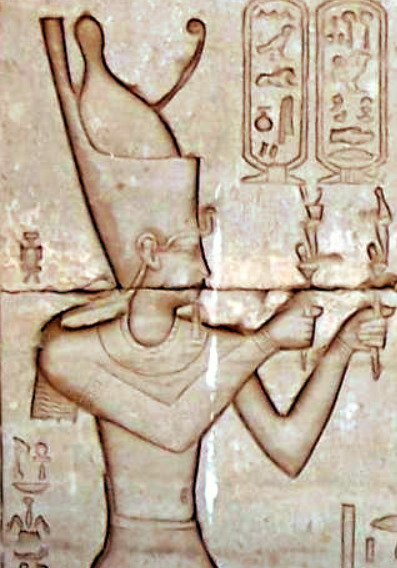
Nero again

Trajan making sacrifices to Hathor
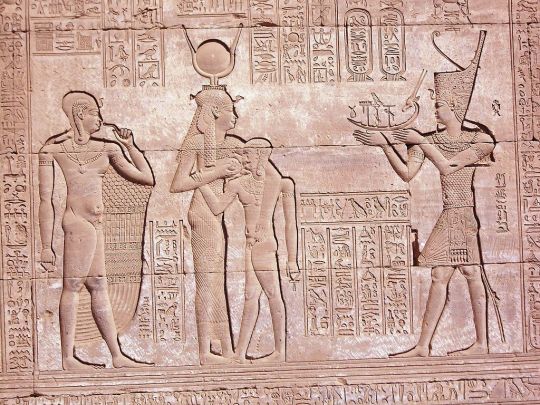
Domitian
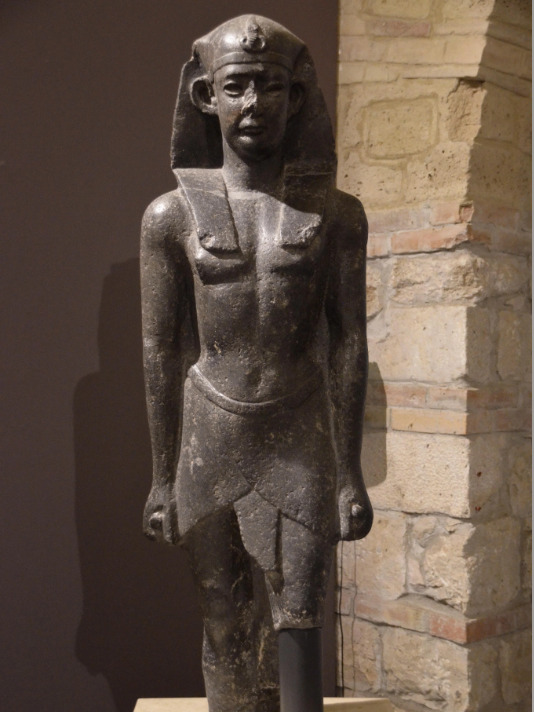
Domitian with Horus
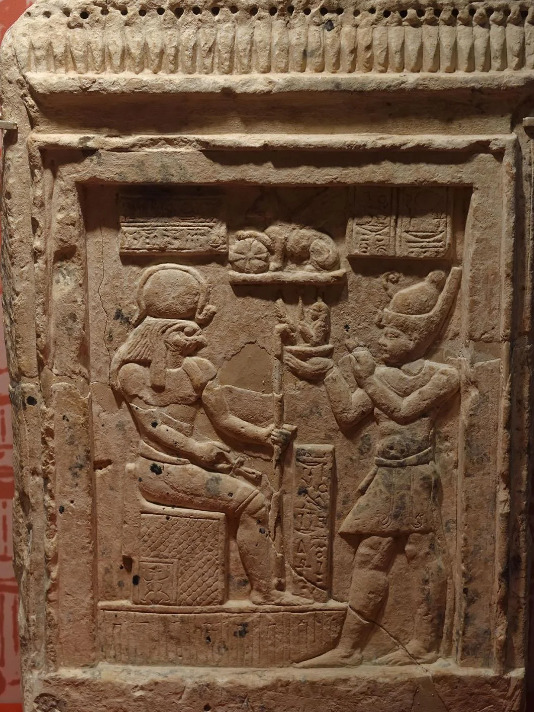
Caracalla
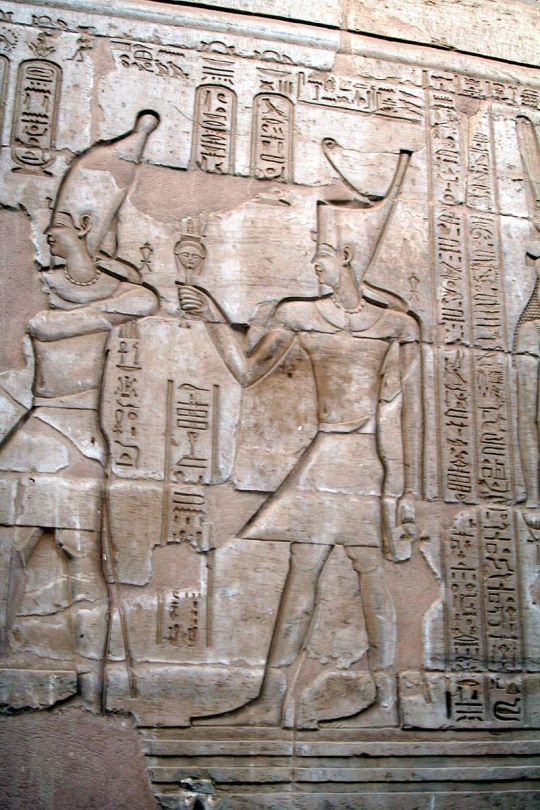
Marcus Aurelius

100 notes
·
View notes
Text
Early in the morning of October 25, 79 (year 832 in ancient Rome), Pliny the Elder died on the coast of Stabia during the expulsion of the last pyroclastic surge that came out of Vesuvius. The interesting thing is that he is the only ancient writer, and important Roman soldier and politician who died due to a natural disaster. Ironically, his passion was the study of nature. Pliny, born in 23, spent his childhood and teens during the dark reign of Tiberius ( 14-37) whom he referred to as "the saddest of men". He praised the emperor Claudius (41-54) saying that "Claudius was one of the best writers". During the reign of Nero (54-68) Pliny attended the construction of the Domus Aurea, emperor's palace.

Pliny began his military career in Germania. During the reign of Vespasian (December 69-June 79) he was procurator in Gaul and Hispania. Pliny was a close friend of Emperor Vespasian who in 77 appointed him commander of the Roman navy and that is why Pliny settled with his family in Misenum (the same city where emperor Tiberius died) on the coast of the Gulf of Naples, near Pompeii. He tried to help in the disaster but ended up among the victims of one of the most famous and deadly volcanic eruptions in history.
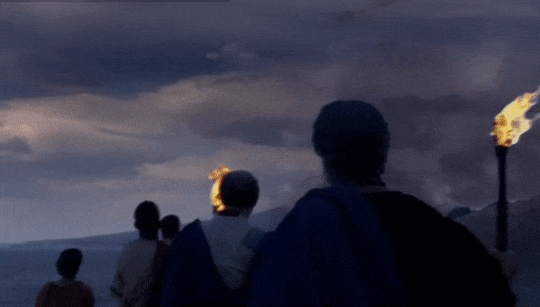
The day of the eruption, the youngest son of Vespasian, brother of the then emperor Titus and who two years later would become emperor Domitian, was celebrating his birthday.
Today we know what happened thanks to Pliny the Younger, also a writer, who documented in detail what he saw from Misenum as well as the testimonies he heard from the survivors in Stabia who were with his uncle.
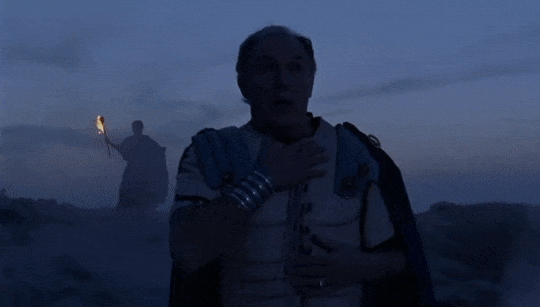
184 notes
·
View notes
Text


Ancient Roman Temple Where Julius Caesar was Assassinated Opens in Rome
The square contains the remains of the Curia of Pompey, a central meeting place for senators where Caesar was stabbed to death on the Ides of March.
An ancient square where historians believe Julius Caesar was stabbed to death — one of the most infamous assassinations in history — was opened to the public for the first time Tuesday.
The Sacred Area of Largo Argentina, containing the remains of four ancient temples in a bustling part of downtown Rome, can now be seen up close via a lowered walkway for 5 euros ($5.50).
The site also contains the remains of the Curia of Pompey, a central meeting place for senators where it is believed Caesar was stabbed to death on March 15 (the Ides of March) in 44 B.C.
Successive generations had built on the site since ancient times, and it was only rediscovered when buildings were demolished in 1926. Three years later, another dictator, Mussolini, inaugurated it as an important historical site.
Two new exhibition areas also document the many archaeological finds at the site over the ages. The works were funded by the fashion house Bulgari and managed by the Capitoline Superintendency for Cultural Heritage.
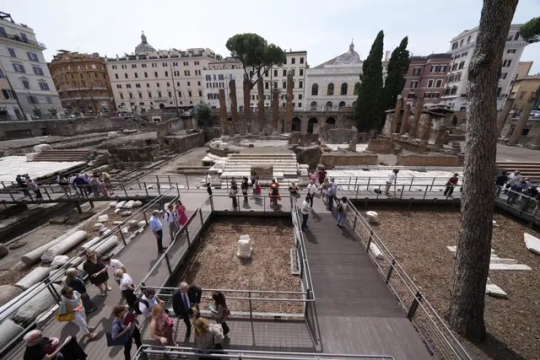
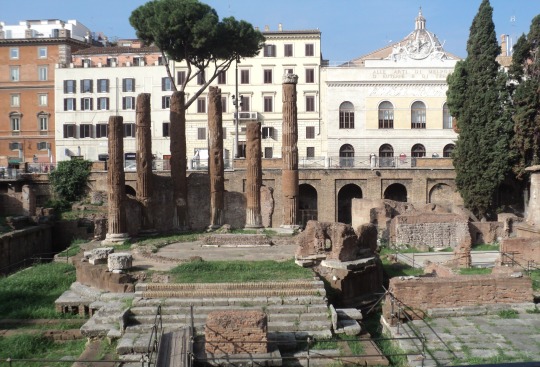

The site could previously only be seen from street level and had become overgrown with weeds. Tourists’ photos posted online show the area being enjoyed by stray cats — there is cat sanctuary on a corner of the square.
“One of the most beautiful and precious places in Rome is finally fully usable by Roman citizens and tourists, who from now on will be able to see from nearby wonderful archaeological finds from various periods of the history of our city,” Miguel Gotor, councilor for culture for the city of Rome, said in a news release.
The first recorded structure of importance on the site dates to the early third century with the construction of what is referred to as Temple C, probably dedicated to the Roman goddess Feronia.
Fires in 111 B.C. and A.D. 80 destroyed much of the earliest buildings, with those remains buried under a new floor built by the emperor Domitian in the first century.
Caesar's death has endured in Western culture as one of the most seismic political events in history, even as its details and wider implications continue to be debated.
In Shakespeare’s dramatic retelling, the dying dictator last words were “Et tu, Brute?” after he saw that his old friend Marcus Brutus, one of the murder conspiracy’s main ringleaders, was among his killers.
What is agreed upon is that Brutus and a group of Roman senators had grown concerned over the size of Caesar's power and influence and his undermining of the Republic.


However, Caesar's killing unleashed a period of reprisal and civil war that killed thousands and effectively killed the Republic. His named successor, his adopted 18-year-old son, Octavian, became what is regarded as Rome's first emperor in 27 B.C., known by then as Augustus.
Such is Italy's vast wealth of archaeological treasures that many important sites have yet to be excavated and thousands of found items have never been put on public display.
Historians' understanding of ancient Rome is still evolving as more items are found. In April a new study shed light on the use of Roman wineries in theatrical ceremonies, while in May archaeologists revealed how people were killed in an earthquake triggered by the immense eruption at Vesuvius in A.D. 79.
By Patrick Smith.
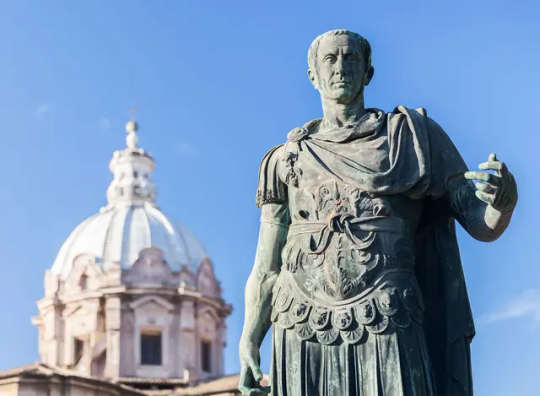

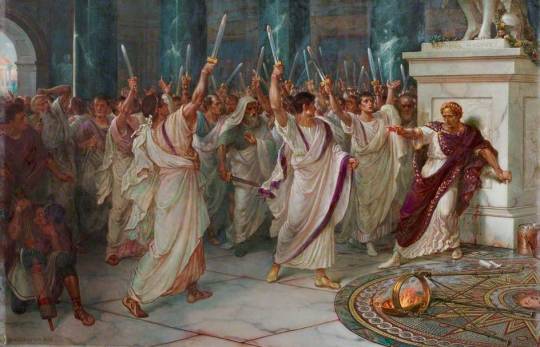

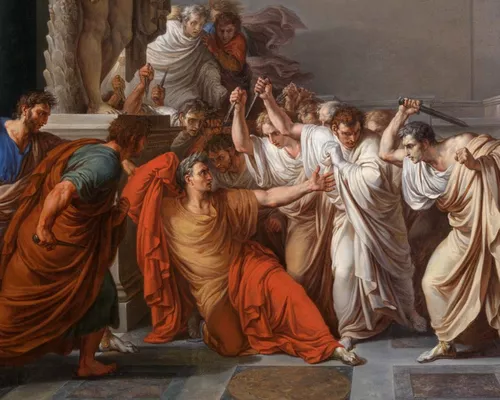
#Ancient Roman Temple Where Julius Caesar was Assassinated Opens in Rome#Curia of Pompey#The Sacred Area of Largo Argentina#Ides of March#ancient artifacts#archeology#archeolgst#history#history news#ancient history#ancient culture#ancient civilizations#ancient rome#roman history#roman empire#roman ruins#roman art
187 notes
·
View notes
Text

The Mirror in the Text: Privacy, Performance, and the Power of Suetonius' Domitian, Jean-Michel Hulls
#OH HO HO HO#if i had any interest in doing emperor comics past caligula i would be able to do SO much with domitian#with just this as a central theme. hell yeah.#domitian tag#book club tag#rome tag#i'd kill him with his own shadow thru the power of Art to really lean in with the theme
2 notes
·
View notes